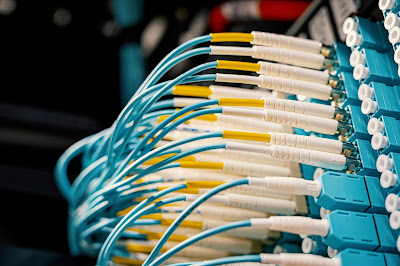In today's business environment, there is no shortage of IT systems that play a vital role in carrying out day-to-day operations. However, businesses are also under increasing pressure for both to succeed in their core business and in its IT operations.
You need the latest in order to succeed in the past. So, what types of IT services does your business need in order to be successful? Toronto's Fusion Computing Managed IT Services answers that question in this post.
Required Types of IT Services
Hardware & Software
Computer hardware
Whether on laptops, workstations, printers, or servers, IT hardware systems are a key ingredient in all businesses. However, a breakdown or loss of hardware can have a negative impact on business revenue and the ability to bring it to market in time.
This is where IT services work. These services help businesses maintain their computers and other hardware assets to operate reliably and securely. In fact, even if you are retired, the IT service provider will remove the hard drive to ensure that business data and confidential information are not compromised.
Software
This is mainly focused on software asset management (SAM).
In addition, the SAM service provider will consider reducing software costs by obtaining unused and obsolete licenses. For example, instead of purchasing a new employee license, the SAM service provider will first review existing existing unused licenses.
Network Infrastructure
The company's network infrastructure would typically include its own Internet connection and internal communication between computers and other devices (such as printers).
When it comes to networks, the main purpose of an IT service provider is to keep the network safe from internal and external threats. They usually do this by installing and managing logs to prevent malicious traffic from reaching the business.
It will also monitor the network to detect and respond to unusual traffic and inbound traffic. Businesses with remote access, payment systems, and other types of networks will need to be monitored around the clock by an IT service provider.
In addition to network settings, your provider will also help with network policies. This may include blocking external login to the system (e.g., from other cities, provinces and countries), requiring multidrug authentication (MFA), and other measures.
Mobile Device Management
Today, employees who bring their phones to use for work is the norm. However, not all businesses have a stand-alone delivery system (BYOD) in place to protect their data and assets on these external devices.
An IT service provider will help implement BYOD in your organization through mobile device management (MDM) management. This allows you to apply security policies to your employees' phones.
The advantage of MDM is that it ensures that only secure devices (e.g., rootless phones) have access to your data and applications. And in the event of lost or stolen devices, MDM will allow you to remotely erase data from those devices, thus keeping your data safe.
Cloud Computing
A growing number of businesses are relying on the cloud to handle their data. In most cases, the data includes confidential information about customers, patients and other assets.
IT service providers help businesses manage their cloud services in two ways.
First, they help to prepare and manage the cloud system. They will assist with the complex task of setting up cloud-based systems and data as well as bug fixes and downtime.
Second, they will keep your cloud systems safe from threats, such as intrusion. The idea - like all other forms of managed IT services - is to free you to focus on your core business and not be distracted from dealing with the day-to-day maintenance of your cloud assets.
Cyber security
Finally, cyber security applies to all IT services above. However, it is worth discussing alone because it is a complex and ongoing field.
IT service providers will always be aware of this change and invest in the technology and skills needed to keep themselves and their customers safe. Next, you don’t need to disrupt your team in line with these issues; instead, you just have to focus on your main job.
Finally, in addition to support for managing your IT systems, IT service providers can also help define and implement your future IT projects.
Their supervisors will bring their proven experience to the table and help you with the roadmap for your future needs. They will help you save on purchasing and storage costs while making sure you meet all your needs.










0 Comments